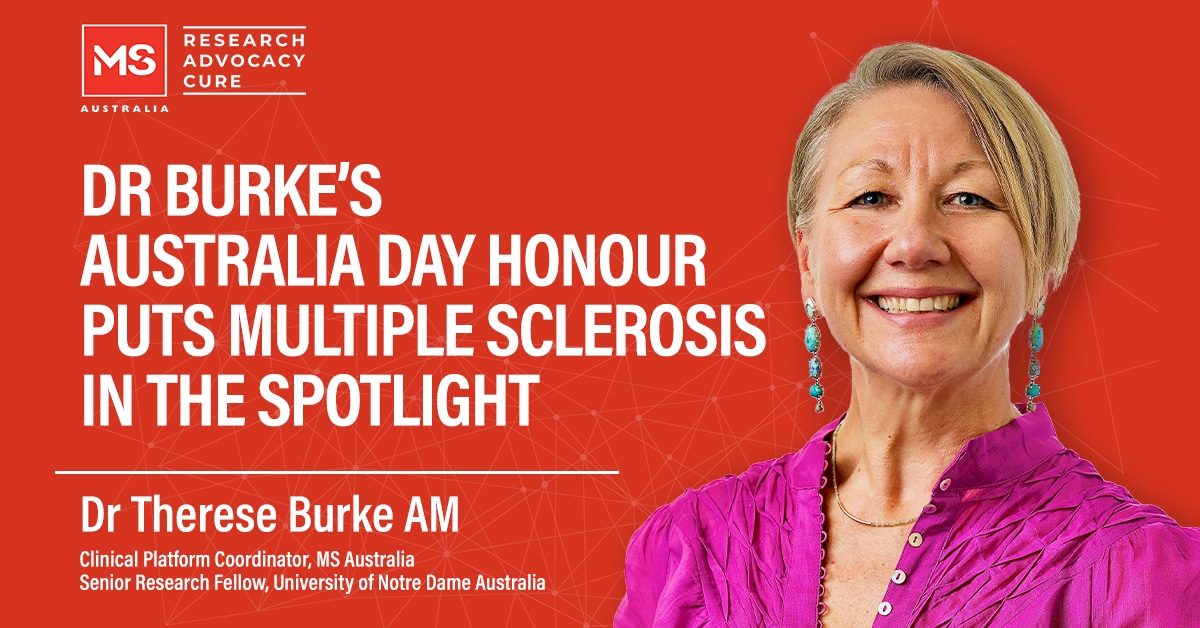
Watch the video of the Parliamentary Friends of MS World MS Day event.
Multiple Sclerosis (MS) Specialist Nurses or MS Nurses are an integral part of the multidisciplinary healthcare team of specialist healthcare professionals providing support, education, advice, and care for people with MS and their family and carers including:
Access to MS Nurse care brings health benefits for people with MS. These include lower disability level, slower self-reported disease progression, less severe symptoms, lower levels of depression and anxiety, and a higher quality of life.
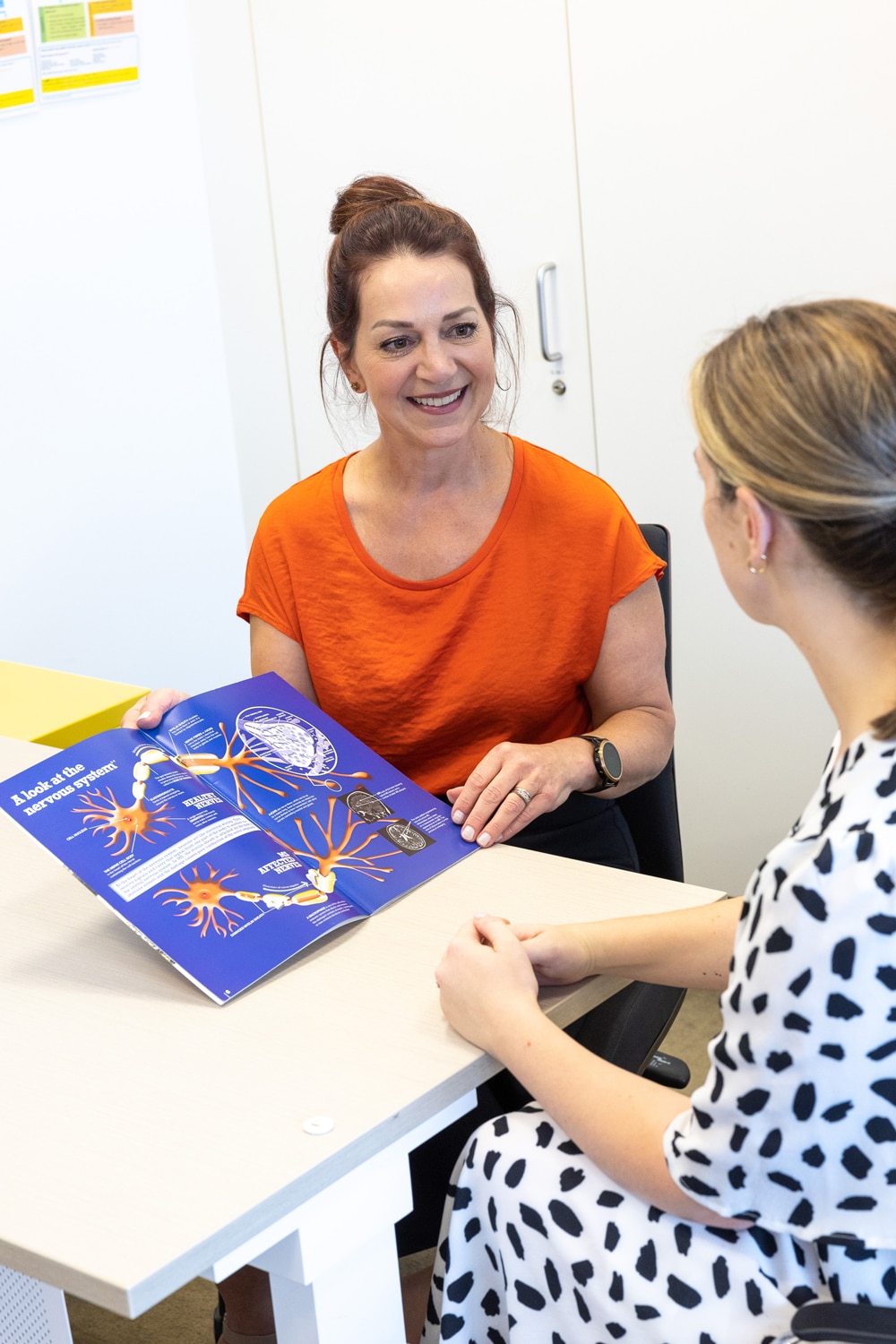
The MS Nurse Care in Australia Report by MS Australia, in collaboration with the Menzies Institute for Medical Research and MS Nurses Australasia (MSNA) explores the patterns of access to MS Nurses in Australia and the impact on health outcomes for people living with MS.
The report found that the number of MS nurses is declining and one-third of Australians living with MS (equivalent to 8,000 people) do not have access to life-changing MS nurse care and have consistently worse health outcomes. Access is even worse for those living in outer regional, remote, or very remote areas, with almost half having no access to MS Nurse care (48.8%).
MS Nurses are a highly cost-effective model of care. MS Nurse care reduces the need for other, more costly health professionals, such as GPs and neurologists and prevents unnecessary emergency department presentations and potentially, unplanned hospital admissions. It is a highly cost-effective model of care.
If every Australian with MS had access to MS Nurse care as part of their ongoing MS management plan this would result in substantial cost savings for MS healthcare in Australia. It would significantly delay disease progression and contribute to an increased quality of life. There are further savings from a reduced reliance on disability, aged care and community supports s.
The report found that it would cost $5 million to employ an additional 50 MS Nurses for the 8,000 people with MS currently without access in Australia. Based on a conservative estimate of 10% costs savings, this could reduce the cost of their overall MS care by $64.3 million annually.
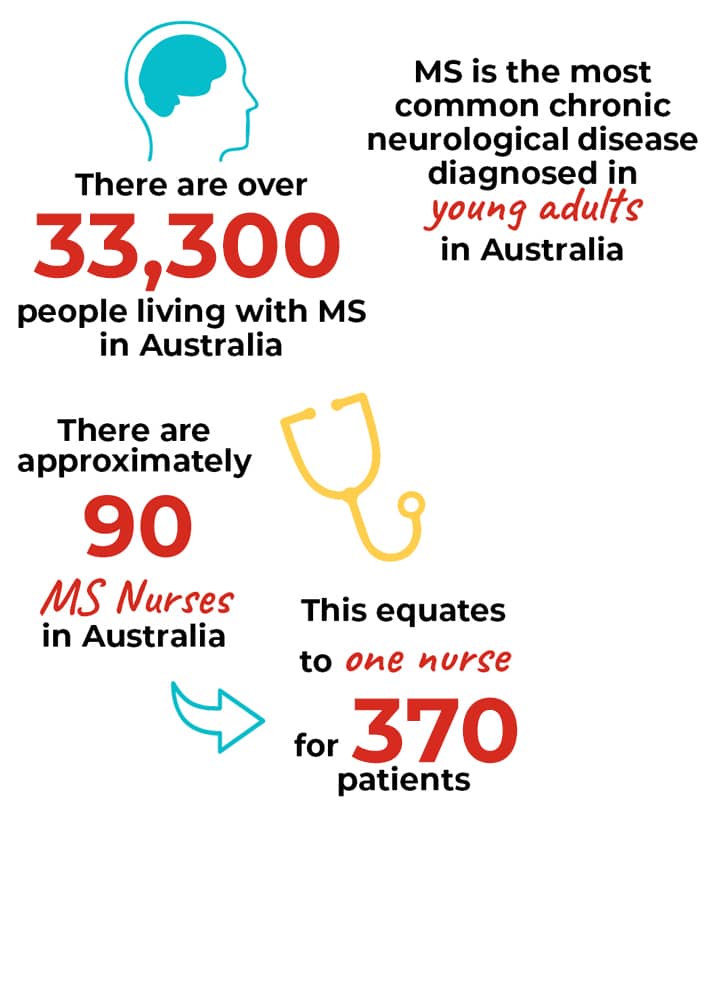
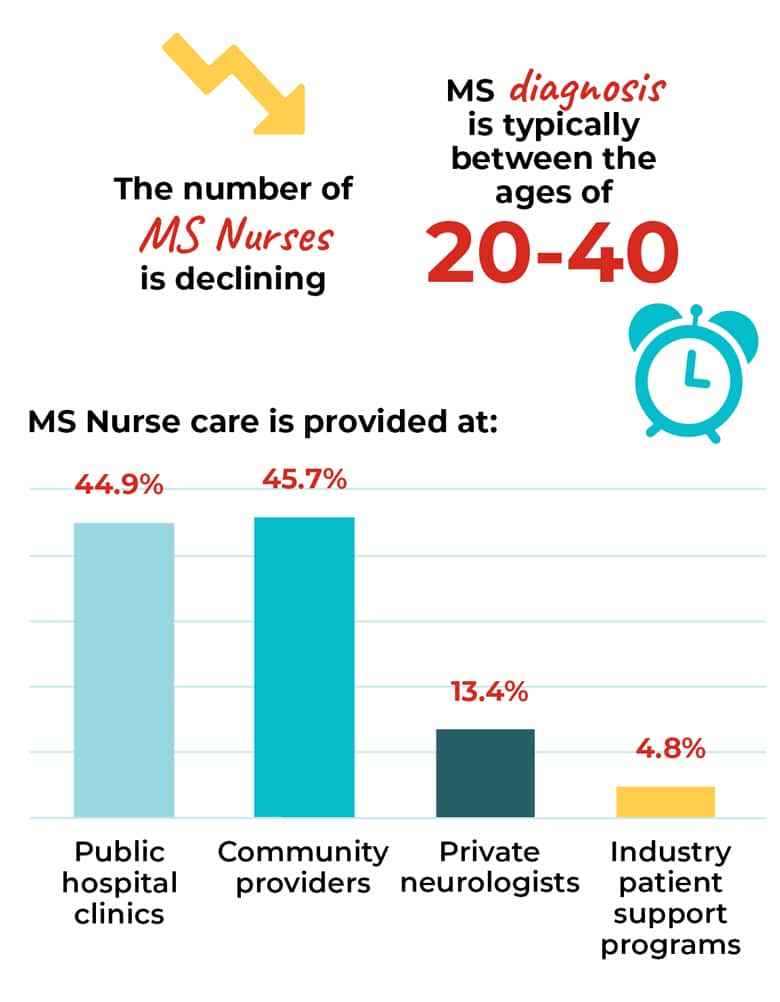
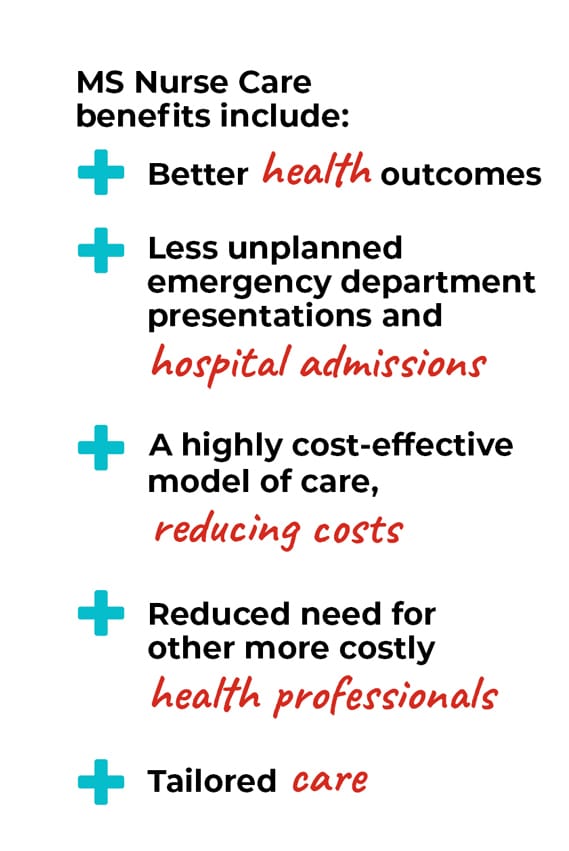
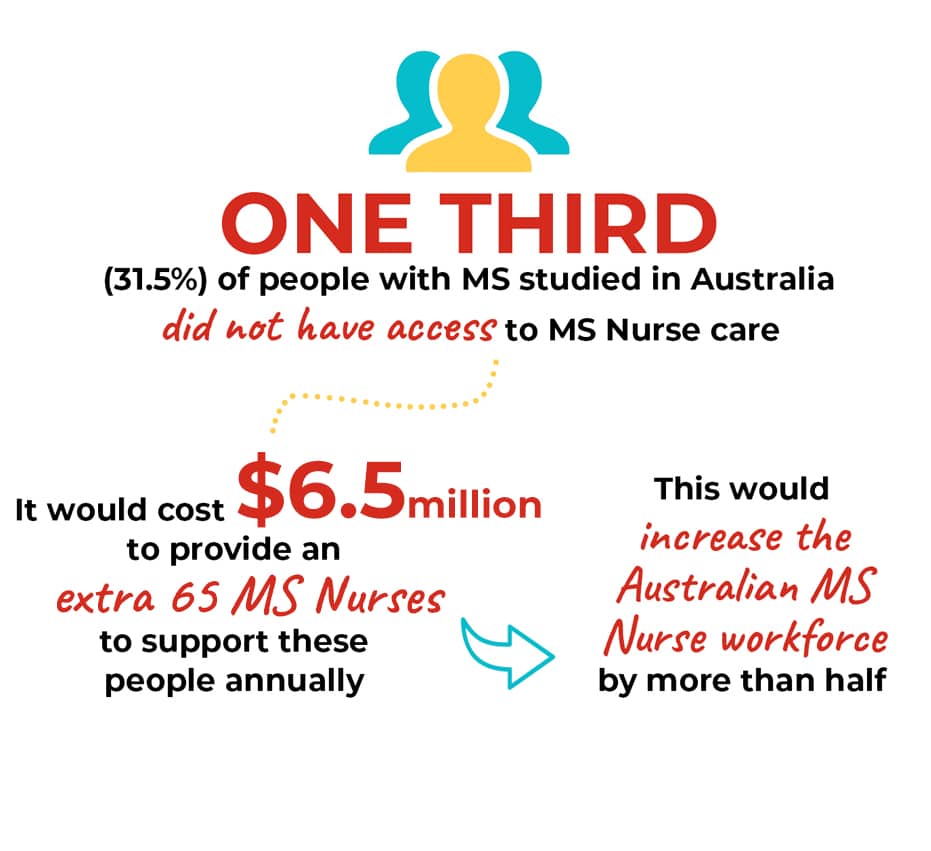
The report made the following key recommendations:

Raise awareness of the existence of MS Nurses, their value, and the supports and services they provide to people with MS and health practitioners

Assist the existing MS Nurse workforce through mentorship and preceptorship, connecting and educating existing MS Nurses and exploring opportunities within university nursing courses to include education about MS Nursing and MS Research Nursing

Increase the number of MS Nurses in Australia by targeted advocacy and assessing the current funding arrangements

Increase access to MS Nurses through expanding telehealth services and advocacy to the Australian Government
In September 2022, MS Australia established a MS Nurses working group to action the MS Nurse Care in Australia Report recommendations and identify solutions to enable all Australians living with MS to be aware of and have access to MS Nurse care as a part of their ongoing MS management.



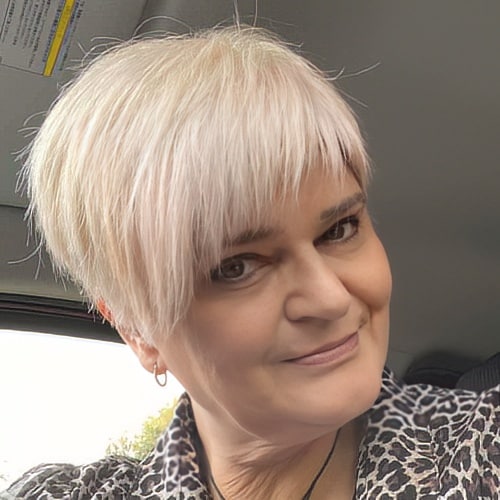
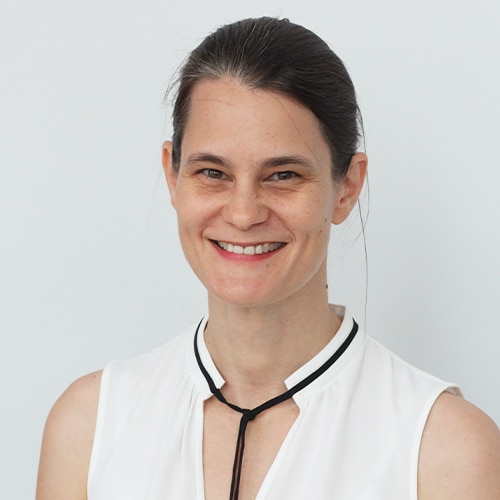






MS Clinics exist across Australia to provide expertise in the diagnosis and management of multiple sclerosis and many have a range of neurological services available. Some are called MS Clinics whilst others are neurology or neuroimmunology clinics. All clinics listed below will have specialist experience with MS. Some are large, tertiary referral, multidisciplinary, bulk-billing clinics, others are smaller, private or visiting specialist clinics. Most clinics require a referral from your GP. This list may help you to find the clinic nearest you, which you can then share with your GP to make a referral: List of MS Clinics in Australia
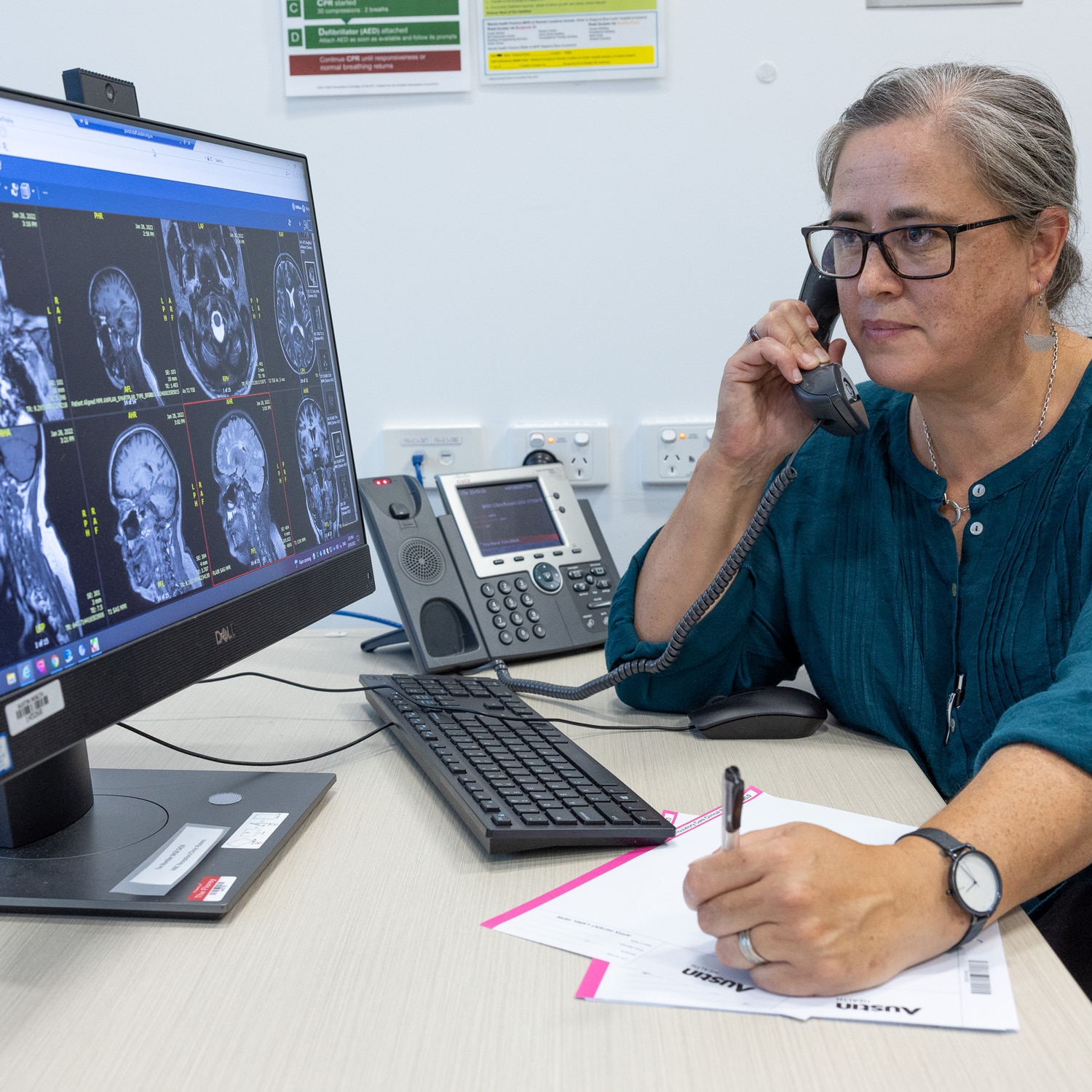
MS Nurses Australasia Inc (MSNA) is the peak body for MS Nurses in the Southern Hemisphere, providing education and support for MS nurses and other health care professionals in Australia and New Zealand. Further information including education and research resources can be found at the MS Nurses Australasia website
Multiple Sclerosis Specialist Nurses in Australia 2017: a snapshot of the MS specialist nurse workforce in Australia, their clinical knowledge and practice, models of employment and funding, and their key responsibilities and training.
Brain health in multiple sclerosis: A nursing resource: a resource to assist MS Nurses working in various settings to understand the impact and importance of brain health at all stages of the MS disease trajectory.
International research on MS Nurses
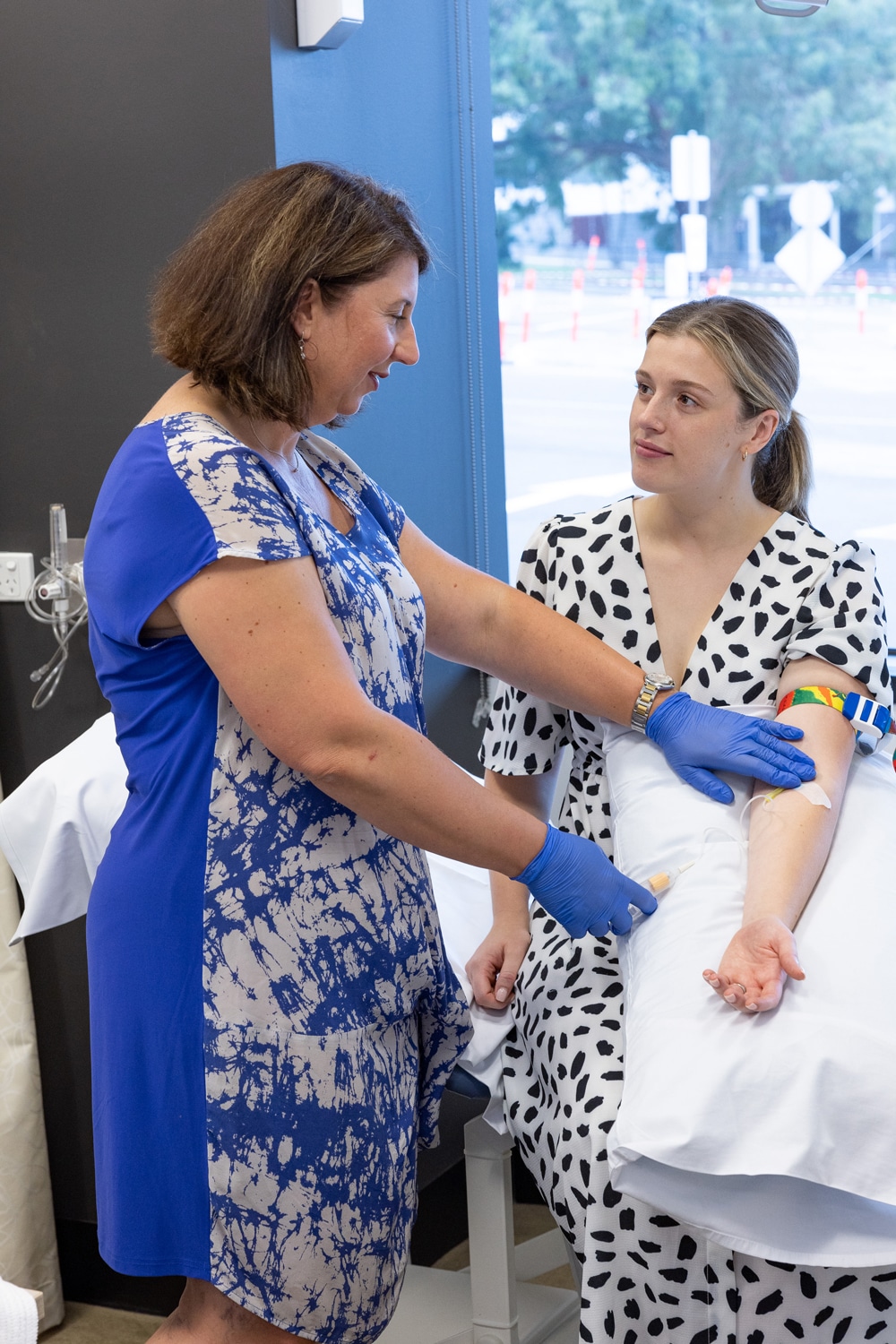
Business Case
Consistent with our support for increased specialist nurse positions, MS Australia has partnered with a range of key stakeholders including neurologists, MS Nurses Australia (MSNA) and MS Health Professionals Network (MSHPN), to create a business case framework to inform proposals or funding requests to secure additional hours, or new or additional MS specialist nurse positions within individual organisations. Please find below an MS Nurse generic business case template and accompanying attachments to amend for your individual use:

